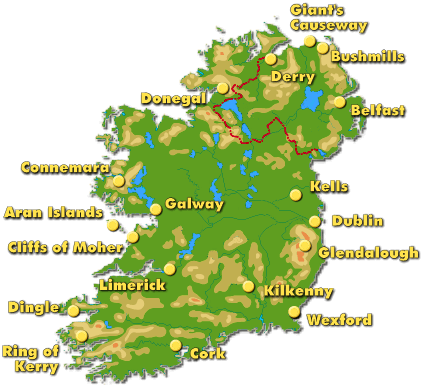Майя
Маткевич
Учитель английского языкаЕГЭ устная часть. Тренировочные тесты. Мильруд Р.П.
Small Talk
Small Talk
Intro
A stranger stands next to you at a bus stop. You wait in line at the bank. Your teacher is late for class. What can you do with this time? You can make small talk. When you meet a new person, you can have a short, simple conversation. This is small talk. It’s a way to get to know someone. Some of the most popular small talk topics include the weather, sports, family, and work. These are all universaltopics that anyone can talk about.
Some people think that small talk is difficult. They feel shy, or they don’t feel prepared to talk to strangers. Other people even think that small talk is cliche. They prefer to have more meaningful conversations, and they don’t want to talk about simple things like the weather. But small talk is a great way to meet new friends and learn new things. Sometimes, all you need is a smile to begin a conversation.
Jessica is going to go on a date with her secret admirer, but she is nervous. Watch today’s English lesson to hear Sara’s small talk ideas.
Sara_R: Marni said you have a secret admirer.
Jessica: Someone has been leaving me gifts. I’m thinking about meeting him for coffee this Friday.
Sara_R: You’re not sure?
Jessica: I am so bad at small talk.
Sara_R: It’s normal to feel shy on a first date.
Jessica: Not just on first dates. I am always bad at small talk. I never know what to say to someone who I’ve just met.
Sara_R: You can ask him about the weather.
Jessica: But that’s so cliche. I want to talk about more meaningful things.
Sara_R: I hear what you’re saying. Hey, I have an idea! Make a list before you go of things to ask him about.
Jessica: Like what?
Sara_R: Ask him about his family. Ask him which countries he’s visited, or if he hasn’t traveled, where he wants to go. Ask about his job.
Jessica: But isn’t that kind of boring?
Sara_R: Not at all. Family, travel, work… those are all universal topics that everyone can talk about. It’s how people get to knoweach other, whether you’re on a date, or taking a class together, or waiting for the bus…
Jessica: OK. But will you help me? I want to feel prepared.
Sara_R: Of course! Small Talk 101. Tomorrow afternoon?
Jessica: Great. Thank you, Sara.
Sara_R: I’m happy to do it.
Jessica’s secret admirer has been giving her many presents. She tells Sara that she will probably go on a date with him. But she is very nervous about making small talk. She feels like she has nothing to say. Sara gives her some ideas. She suggests talking about the weather, but Jessica wants to have a deeper, meaningful conversation.
Sara gives Jessica more ideas, including making a list of topics that she could talk about. Jessica is afraid that these simple topics will be boring and cliche, but Sara says that they are universal and easy for all people to talk about. Jessica wants more help in order to be prepared, so Sara says that she will give her a class on Small Talk 101.
Do you like to make small talk with strangers? What is the most interesting thing you learned from small talk?
Present Perfect Progressive
Jessica is telling Sara about her secret admirer. She says, “Someone has been leaving me gifts.” She uses the present perfect progressive.
We form the present perfect progressive (sometimes called the “present perfect continuous”) with have/has been + main verb + ing. We use this tense to talk about an on-going action that began in the past, is still in progress, and may continue into the future.
For example, you might say, “I have been thinking about getting a new car for weeks.” You first thought of getting a new car weeks ago, you’re currently thinking of getting one, and unless you buy one or decide not to buy one right now, you’ll continue thinking about it.
When Jessica says, “Someone has been leaving me gifts,” she uses the present perfect progressive to show that he began leaving gifts in the past, he is still leaving gifts, and he will probably continue to leave gifts.
Which is correct, “We have thinking about moving to China,” or, “We have been thinking about moving to China”?
E.g. sentences
| Explanation | Past | Present | Future | |
|---|---|---|---|---|
| Simple Past | Simple Present | Future I Simple | ||
| action that takes place once, never or several times | He played football every Tuesday. | He plays football every Tuesday. | He will / is going to play football every Tuesday. | |
| actions that happen one after another | He played football and then he went home. | He plays football and then he goes home. | He will play football and then he will go home. | |
| state | He loved football. | He loves football. | He will love football. | |
| Past Progressive | Present Progressive | Future I Progressive | ||
| action going on at that moment | He was playing football. | He is playing football. | He will be playing football. | |
| actions taking place at the same time | He was playing football and she was watching. | He is playing football and she is watching. | He will be playing football and she will be watching. | |
| Past Perfect Simple | Present Perfect Simple | Future II Simple | ||
| action taking place before a certain moment in time; emphasises the result | He had won five matches until that day. | He has won five matches so far. | He will have won five matches by then. | |
| Past Perfect Progressive | Present Perfect Progressive | Future II Progressive | ||
| action taking place before a certain moment in time (and beyond), emphasises the duration | He had been playing football for ten years. | He has been playing football for ten years. | He will have been playing football for ten years. | |
Table of English Tenses
| tense | Affirmative/Negative/Question | Use | Signal Words |
|---|---|---|---|
| Simple Present | A: He speaks. N: He does not speak. Q: Does he speak? |
|
always, every …, never, normally, often, seldom, sometimes, usually if sentences type I (If Italk, …) |
| Present Progressive | A: He is speaking. N: He is not speaking. Q: Is he speaking? |
|
at the moment, just, just now, Listen!, Look!, now, right now |
| Simple Past | A: He spoke. N: He did not speak. Q: Did he speak? |
|
yesterday, 2 minutes ago, in 1990, the other day, last Friday if sentence type II (If Italked, …) |
| Past Progressive | A: He was speaking. N: He was not speaking. Q: Was he speaking? |
|
when, while, as long as |
| Present Perfect Simple | A: He has spoken. N: He has not spoken. Q: Has he spoken? |
|
already, ever, just, never, not yet, so far, till now, up to now |
| Present Perfect Progressive | A: He has been speaking. N: He has not been speaking. Q: Has he been speaking? |
|
all day, for 4 years, since 1993, how long?, the whole week |
| Past Perfect Simple | A: He had spoken. N: He had not spoken. Q: Had he spoken? |
|
already, just, never, not yet, once, until that day if sentence type III (If Ihad talked, …) |
| Past Perfect Progressive | A: He had been speaking. N: He had not been speaking. Q: Had he been speaking? |
|
for, since, the whole day, all day |
| Future I Simple | A: He will speak. N: He will not speak. Q: Will he speak? |
|
in a year, next …, tomorrow If-Satz Typ I (If you ask her, she will help you.) assumption: I think, probably, perhaps |
| Future I Simple
(going to) |
A: He is going to speak. N: He is not going to speak. Q: Is he going to speak? |
|
in one year, next week, tomorrow |
| Future I Progressive | A: He will be speaking. N: He will not be speaking. Q: Will he be speaking? |
|
in one year, next week, tomorrow |
| Future II Simple | A: He will have spoken. N: He will not have spoken. Q: Will he have spoken? |
|
by Monday, in a week |
| Future II Progressive | A: He will have been speaking. N: He will not have been speaking. Q: Will he have been speaking? |
|
for …, the last couple of hours, all day long |
| Conditional I Simple | A: He would speak. N: He would not speak. Q: Would he speak? |
|
if sentences type II (If I were you, I would go home.) |
| Conditional I Progressive | A: He would be speaking. N: He would not be speaking. Q: Would he be speaking? |
|
|
| Conditional II Simple | A: He would have spoken. N: He would not have spoken. Q: Would he have spoken? |
|
if sentences type III (If I had seen that, Iwould have helped.) |
| Conditional II Progressive | A: He would have been speaking. N: He would not have been speaking. Q: Would he have been speaking? |
|
New Zealand
| Maori name: | Aotearoa (= land of the white cloud) |
|---|---|
| Capital: | Wellington |
| Size: | 270,534 km² |
| Population: | 3.5 million |
| Borders: | no direct borders; surrounded by sea (South Pacific) |
| Currency: | New Zealand Dollar |
| Official languages: | English, Maori |
| Nationality / People: | A person of New Zealand nationality is a New Zealander. |
| Local time: | 23:46 NZST (Tuesday, 9th February 2016) |
Other interesting facts:
The country's nearest neighbour is Australia, which lies more than 1,600 km northwest of New Zealand. New Zealand comprises two main islands (North Island and South Island) and a number of small islands, some of which are hundreds of kilometres from the main islands.
Australia
| Official name: | Commonwealth of Australia |
|---|---|
| Capital: | Canberra |
| Size: | 7.7 million km² |
| Population: | 21 million |
| Borders: | no direct borders; Timor Sea and Arafura Sea (northwest), Torres Strait (northeast), Great Barrier Reef (northeast), Tasman Sea (southeast), Indian Ocean (south) |
| Currency: | Australian Dollar |
| Official language: | English |
| Nationality / People | A person of Australian nationality is an Australian. |
| Local time: | Perth: 19:45 WST (Tuesday, 9th February 2016) Sydney: 21:45 EST (Tuesday, 9th February 2016) |
Other interesting facts:
Australia is not only a country but also the smallest continent.
Ireland
Accompany us on our virtual Tour around Ireland. We've picked the nicest places on the Emerald Isle for you to explore.

| Official name: | Republic of Ireland |
|---|---|
| Irish name: | Éire |
| Capital: | Dublin |
| Size: | 70,282 km² |
| Population: | 3.5 million |
| Borders: | Northern Ireland (north), Irish Sea (east), Atlantic Ocean (south, west) |
| Currency: | Euro |
| Official languages: | English, Irish |
| Nationality / People: | A person of Irish nationality is an Irishman or an Irishwoman. |
| Local time: | 11:43 GMT (Tuesday, 9th February 2016) |
Other interesting facts:
As Ireland is famous for its green countryside, it is also known as the “Emerald Isle” (= green island).
Письмо (С1)
Задание С1: Личное письмо базового уровня
На экзамене предлагается отрывок из письма от вашего возможного друга по переписке. В письме содержится некая новость и несколько вопросов, где у вас спрашивают мнения, совета и т.п.
Требуется написать письмо-ответ, начиная с вашего краткого обратного адреса в верхнем правом углу, даты под адресом, приветствия и заканчивая прощальной фразой и именем.
Нужно обязательно:
- поблагодарить за полученное письмо;
- прокомментировать новость, содержащуюся в письме;
- задать вопросы, касающиеся темы новости письма;
- ответить на все вопросы, заданные в полученном письме, дать совет, выразить своё мнение и т.д.
Советы от международного языкового центра Language Link
Важно! Требования к объему письма - 100-140 слов (считаются все слова, включая предлоги и артикли). Требования к объему нужно соблюсти обязательно. Допустимое отклонение от заданного объёма составляет 10%. Если в работе будет меньше 90 слов, то задание проверке не подлежит и оценивается в 0 баллов. Не стоит описывать лишние подробности, т.к. если вы напишете более 154 слов, то от начала отсчитают 140 слов и будут оценивать только эту часть письма.
Помните, что обязательные повторяемые элементы письма — адрес, обращение (Dear Alice), благодарность за полученное письмо (Thanks for your letter. It was great to hear from you), заключительные фразы (типа Write soon. Best wishes) и ваше имя в конце письма уже составляют около 20 слов. Заучите эти фразы и зрительно запомните схему расположения частей письма.
ОЧЕНЬ ВАЖНО! Поскольку в этой части ЕГЭ важно не только содержание, но и форма (layout), то обязательно зрительно запомнить расположение составных частей письма на странице – см. пример ниже.
Обратите внимание:
- Обращение начинается с Dear, к которому добавляется имя.
- Обращение пишется не посередине листа, а на его левой стороне, без отступа на красную строку.
- Не забудьте поставить запятую (а не восклицательный знак) после обращения.
- Поблагодарите за полученное письмо.
- Объясните, почему вы пишете это письмо, а также о чем оно будет.
- Ответьте на вопросы, которые вам задал автор письма в своём послании.
- В конце письма в новом абзаце задайте адресату вопросы согласно заданию (в разобранном ниже примере это вопросы о новом доме).
- В конце письма не забудьте написать завершающую фразу Best wishes(С наилучшими пожеланиями) или Love (Целую) на отдельной строке.
- Не забудьте поставить запятую после Best wishesили Love.
- На отдельной строке после завершающей фразы подпишите письмо — напишите своё имя.
- B верхнем правом углу напишите свой адрес (адрес отправителя):
1-ая строка - Номер дома, Название улицы
2-ая строка - Город
Можно обойтись кратким адресом – улицей и городом.
- Под адресом напишите дату написания письма в формате число, месяц год
|
|
6 Sadovaya St |
|
Dear (1) Alice, (2) (3) |
|
|
Write soon. |
|
- Перед выполнением этой части экзамена внимательно прочитайте отрывок из письма от вашего предполагаемого друга и задание к нему. Задание поможет вам понять, что от вас требуется.
- Подчеркните содержащиеся в отрывке вопросы, на которые вы должны ответить в первой половине вашего письма.
- Определите для себя тему вопросов, которые вы должны задать во второй части вашего письма.
Например:
You have 20 minutes to do this task.
You have received a letter from your English-speaking pen-friend Tom who writes:
|
…In Great Britain most young people want to become independent from their parents as soon as possible. Could you tell me what you and your friends think about not relying on your parents? Are you ready to leave your family immediately after you finish school? Is it easy to rent a house or an apartment for students in Russia? As for the latest news, I have just returned from a trip to Scotland… |
Write a letter to Tom.
In your letter
− answer his questions
− ask 3 questions about his trip to Scotland
Write 100 – 140 words.
Remember the rules of letter writing.
- В черновике напишите план первой половины вашего письма. Например, в демоверсии ЕГЭ за 2009 год нужно дать ответ на вопрос, насколько вы полагаетесь на помощь родителей. Обязательно обоснуйте ваш ответ. В письме всегда есть подсказки. В данном случае, ответ на вопрос «сможете ли вы обеспечить себя жильём» подскажет вам, насколько вы готовы начать самостоятельную жизнь.
- Помните, что от вас не требуется писать про себя правду и ничего кроме правды. Не стесняйтесь фантазировать. Главное, вы должны предоставить достаточную порцию вашей письменной речи на английском языке, на основе которой можно сделать умозаключение о степени владения вами навыками написания личного письма.
- Набросайте план второй части вашего письма. Например, при выполнении задания демоверсии 2009 года вспомните, что вы знаете о Шотландии (Loch Ness Monster, the Edinburgh arts festival, the Scottish accent, etc.). Можно задать вопросы на эти темы, а также любые стандартные вопросы о какой-либо поездке вообще: Did you have a good time? What was the weather like? Did you do a lot of sightseeing?
- Зрительно восстановите в памяти макет письма. Начните писать, соблюдая правила написания личного письма (см. выше).
- Закончив ваше письмо, обязательно проверьте его на наличие орфографических или грамматических ошибок. Если вы не уверены в правильности написания какого-либо слова, замените его на другое, в написании которого вы уверены.







